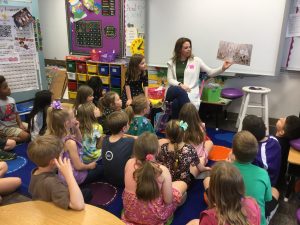In early November 2019, the Kansas State Board of Education voted unanimously to approve policies aimed at improving the identification of students with dyslexia. This will provide the students with better services and increase teacher training in the area of dyslexia. Under these recommendations, every accredited school district in Kansas will be required to screen and identify students at risk for dyslexia or demonstrating characteristics of dyslexia in agreement with evidence-based practices by August 2020. Accredited schools will be required to use a structured literacy program as the sole program for teaching literacy skills to all students. Candidates for K-6 teaching licenses, English Language Arts endorsements, reading specialist teaching licenses, and special education teaching licenses will be required to pass an examination of their knowledge of the science of reading by 2024. Schools will provide the necessary professional learning opportunities for their teachers.

Well, it’s about time! As a kindergarten teacher, I am often asked whether I notice signs of dyslexia in a student who struggles. Parents sometimes assume that because a student writes some letters backwards, they are dyslexic. While I’m quick to point out that letter reversal in kindergarten is completely age-appropriate, that’s about all I will say on the subject of dyslexia, because frankly, I can always afford to learn more about it. I am thrilled that teachers will be provided professional learning opportunities on the topic. Dyslexia has become the new buzzword in education, and we need more resources on how to help these kiddos be successful learners.
But on the other hand … as a teacher, we are stretched thin already. We have a classroom full of students we want to help reach their full potential. Every year, there’s a new thing in education that we have to learn and incorporate into our day. And by the time we feel comfortable with that new thing, there’s something else we need to add in – new mandates from the state, new mandates from the school district, etc. And it’s all important, it really is. I’m so in favor of professional development opportunities for teachers to learn more about dyslexia … but I’m just wondering how we will fit it all in.
But on the other hand … not only am I a teacher, but I’m a mom of a dyslexic boy. I get it. I know that struggle. I know that pain. I’ve watched my son try to sound out words, try to understand phonics rules, try to make sense of the jumbled mess of letters on a page. Chapter books overwhelm him. He’s in the fifth grade and prefers graphic novels or early chapter books, simply because the font is bigger or is broken up with pictures and large margins. He wants to read Harry Potter and Percy Jackson like his friends, but we read those to him, so he doesn’t get frustrated and lose the desire to read, which some days seems to be hanging by a thread. And because he struggles with phonics, his spelling is below grade-level, and writing assignments are torture. Homework time in our house is brutal. Everyone cries because it is hard on all of us. My husband and I are both teachers, and we just can’t help him sometimes. It is heartbreaking.
those to him, so he doesn’t get frustrated and lose the desire to read, which some days seems to be hanging by a thread. And because he struggles with phonics, his spelling is below grade-level, and writing assignments are torture. Homework time in our house is brutal. Everyone cries because it is hard on all of us. My husband and I are both teachers, and we just can’t help him sometimes. It is heartbreaking.
The saving grace has been the help our son has received from his school. We were so incredibly fortunate to get into Children’s Mercy Hospital when he was in kindergarten and begin therapy for anxiety. This led to academic testing (that we were lucky enough to have our insurance cover) in first grade, which gave him the diagnosis of a specified learning disability. This diagnosis allowed us to pursue an Individualized Education Plan (IEP) for him, which gave him access to resource teachers who have received specific dyslexia intervention training. The impact they have made is huge. The IEP has allowed him modifications in the classroom and during testing.
We are eternally grateful, and it is not lost on us how lucky we have been throughout this process. Academic testing is incredibly expensive, whether pursued through a private academic firm or a medical facility. Our insurance covered this, but that is not the norm for all families. And if school psychologists are qualified to provide this crucial academic testing, then why don’t they? The answer, as always, goes back to teachers, school counselors, and school psychologists working hard to help ALL students. Our days are packed for eight solid hours, our evenings are packed with papers to grade, plans to make, and professional development to attend.
So, my point? Our kids, parents, and teachers need more help. They deserve more help. Dyslexia is not a learning disability that will eventually go away. People with dyslexia have strategies in place to help them manage it. Our kids need to learn these strategies early, our parents should have access to these strategies, and our teachers need the training and time to help these kids.
















